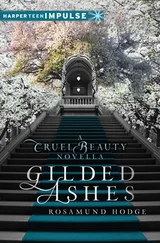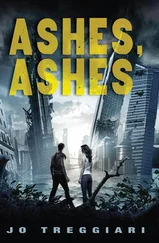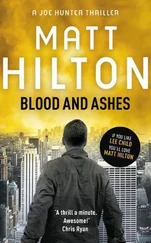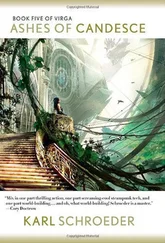I started to ask my dad about the subconscious, and he gave me a long explanation about how synapses in the brain fire when someone is in a coma, how they can create sights, sounds, other worlds that seem incredibly real.
Then he warned me not to talk about much, even if it’s just made up, because there are reporters who have been sniffing around, people who want to ask me all kinds of questions about my “near-death experience.”
So I shut up.
“Oatmeal mush again?” I say to Patricia, the nurse who comes every morning to prop me up on pillows and check my vitals. “Can I get an extra cookie at least?”
I smile big, because I ask this every day, and every day she gives in. She feels bad for me, I think. Visiting hours are just a small fraction of the afternoon, and the TV only has a few channels.
She pats my arm as she undoes the Velcro cuff and smiles at me. “You’ll be out of here soon enough, and then you can eat anything you like,” she says.
“Really?” I ask.
“Tomorrow,” says Patricia, her eyes shining. “We just got a release date for you, and your dad’s taking you home in the morning.”
My grin is huge as I lie back on my pillows. For eight days now, I’ve been put through a battery of tests by the doctors and fed lots of Jell-O and soft foods. The nurses agreed to take out my IV once I showed them how much I could eat. Oh, man, did I miss food! Even this hospital stuff is a taste sensation in my mouth.
What I can’t stand, though, is how much everyone who visits coddles me. My dad talks softly, which is so unlike him, and Nick’s only been twice, both times hovering over me like a nervous bird, like he might break me. There has been a steady parade of well-wishers—people from the church we used to go to, neighbors, Curtis Simmons and a few of the guys from the sheriff’s department . . . even our school principal, Mr. Faulkland, who brought me a giant bouquet of sunflowers. But they all kind of stood over me, looking afraid. Like at any moment I might slip back into oblivion, and if they were there when it happened, they’d be somehow to blame. I understand how they feel, though—life is fragile, worthy of reverence and gentle care. The old me didn’t realize that at all.
Still, I sometimes get tired of their nervousness. Only Carson acts like herself—lying next to me on the bed, painting my toenails while she tells me about her various boyfriend possibilities for junior year. She even tried to sneak Georgia in once (“That dog is dying to see you!” she told me), but she got caught by an orderly and was banned from visiting hours the next day, so I told her not to attempt it again. I can’t live without my daily dose of Carson. It’s the only thing keeping me sane.
When Dad comes this afternoon, he asks me if I want anything special for dinner on my first night back at home. “We’ll eat out on the porch,” says Dad. “Did I tell you I put in a swing like you always wanted?”
I flash back to being with Thatcher on the porch swing at Dodsons’ Farm. A throbbing despair works its way into my heart, one that I can’t quite explain. It feels like there’s a part of me missing . But it was all in my head .
I find that I’m having to remind myself of that a few times a day—I have to fight to stay out of my thoughts and in the world in front of me. Still, I can’t help but repeat my request every night when the lights go out. Thatcher, give me a sign. Show me that it was real. So far, nothing. Which should make me feel even more certain that it was all in my mind, that the Prism doesn’t exist.
The only thing that keeps me hanging on is the dull pain in my heart, the one that feels like the ache of truth, a physical manifestation of the loss I experience whenever I think of Thatcher. On my last night in the hospital, I ask again for a sign. But this time I add, If you’re not giving me a sign because you want me to move on and forget you, I won’t. Don’t think you can do that to me—I will keep trying to find you.
I’m not sure even I believe what I’ve said—it sounds crazy. But I know him, or the him I created in my mind, and that’s the type of thing that he’d respond to. I hope.
The next morning, Dad comes bright and early, newspaper in hand.
“How are you feeling?” he asks.
“Stronger. I think they’re releasing me today.”
“That’s the word.” He hands me a bag with some clothes in it. Then he sits in the chair in the corner and unfolds his newspaper. Some habits are hard to break. Reading the news is one of them. I take some comfort in the familiarity of it. Not everything has changed.
Slipping out of bed, I’m grateful that Dad brought me my pajama shorts and tank top a couple of days ago. The hospital gown had serious fashion issues. I walk slowly to the window, holding on to surfaces along the way to steady my still-weak legs, and I study the prism that Nick brought me, the way the morning sun hits it directly and casts a rainbow of colors on my wall. Did he want to break up with me? Or was that just my imagination, too? I can’t escape my own confusion. Staring at the pastel shades, I desperately wish for a sign from Thatcher.
They start to shimmer and waver.
I jerk my gaze back to the prism. It’s rocking back and forth slightly as though someone blew on it. My breath catches. Dad’s too far away to have had any influence on it. Did my movements stir the air and set it in motion? If so, why didn’t it move right away? Why was there a delay, giving me time to study the colors before they wavered?
“Thatcher?” I whisper low, so low my dad can’t hear me.
“Pretty.”
I spin around. My physical therapist is standing near me, with her clipboard clutched at her side. I didn’t hear her come in. I give her a soft smile. “My boyfriend brought it for me.”
“I’ve never been a fan of prisms.”
I almost ask her to repeat herself, because it sounded like she said prisons .
“I’m going to sign you out today,” she says, handing my father a discharge slip. “I’ll see you again for a couple of appointments, though. You’re still not fully recovered. We’ve got to get you back up to full energy.”
My heart stutters to a stop for a second as her gaze locks with mine. Her eyes flash gold. She smiles a familiar smile, and suddenly I’m convinced that everything I saw, everything I knew in the Prism, was very, very real.
My profound thanks to everyone who helped this book take shape: Morgan Baden, Claudia Gabel, Sara Lyle, Sarah MacLean, Melissa Miller, Jan Nowasky, Micol Ostow, Doug Stewart, and the entire team at Katherine Tegen Books!












